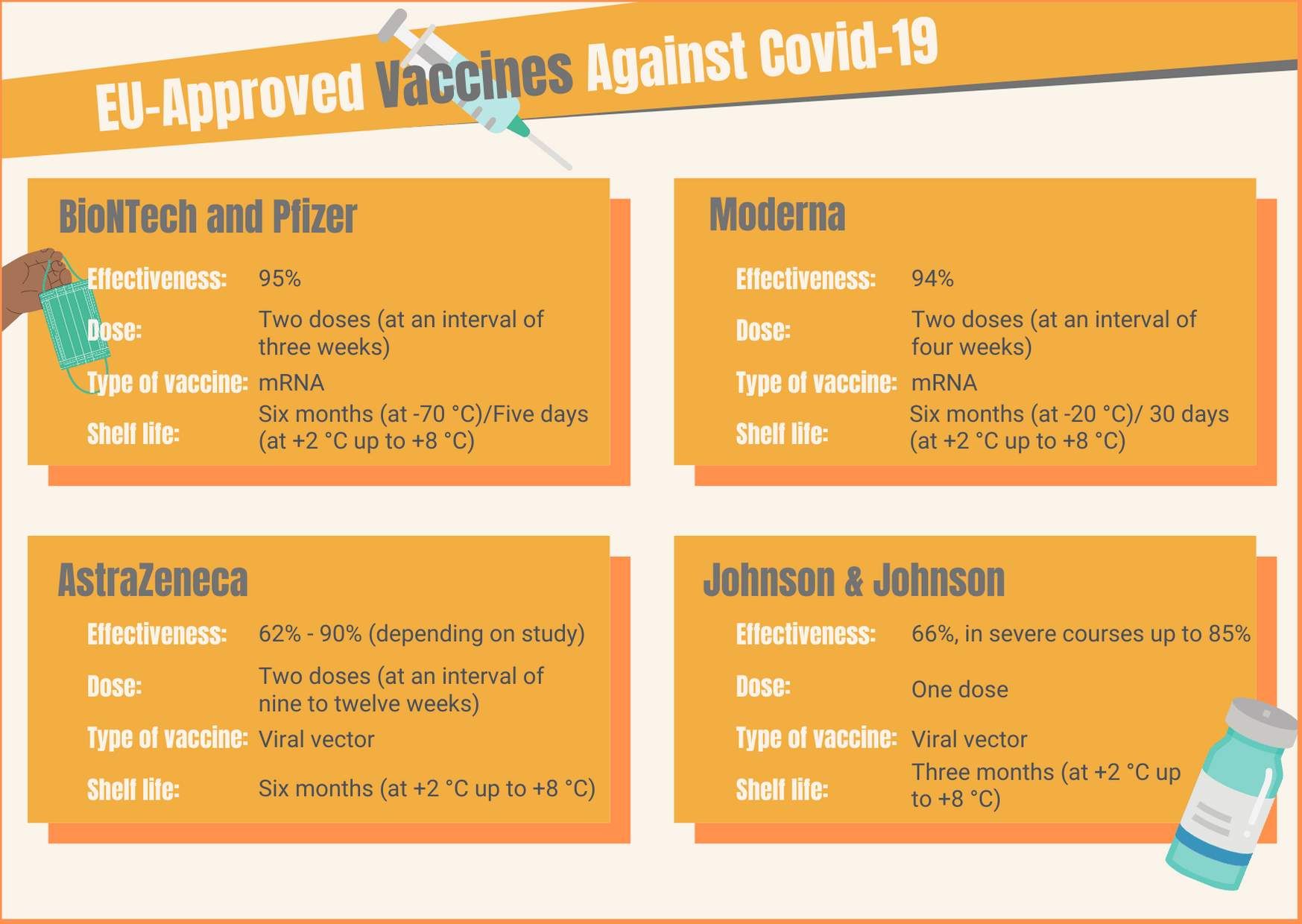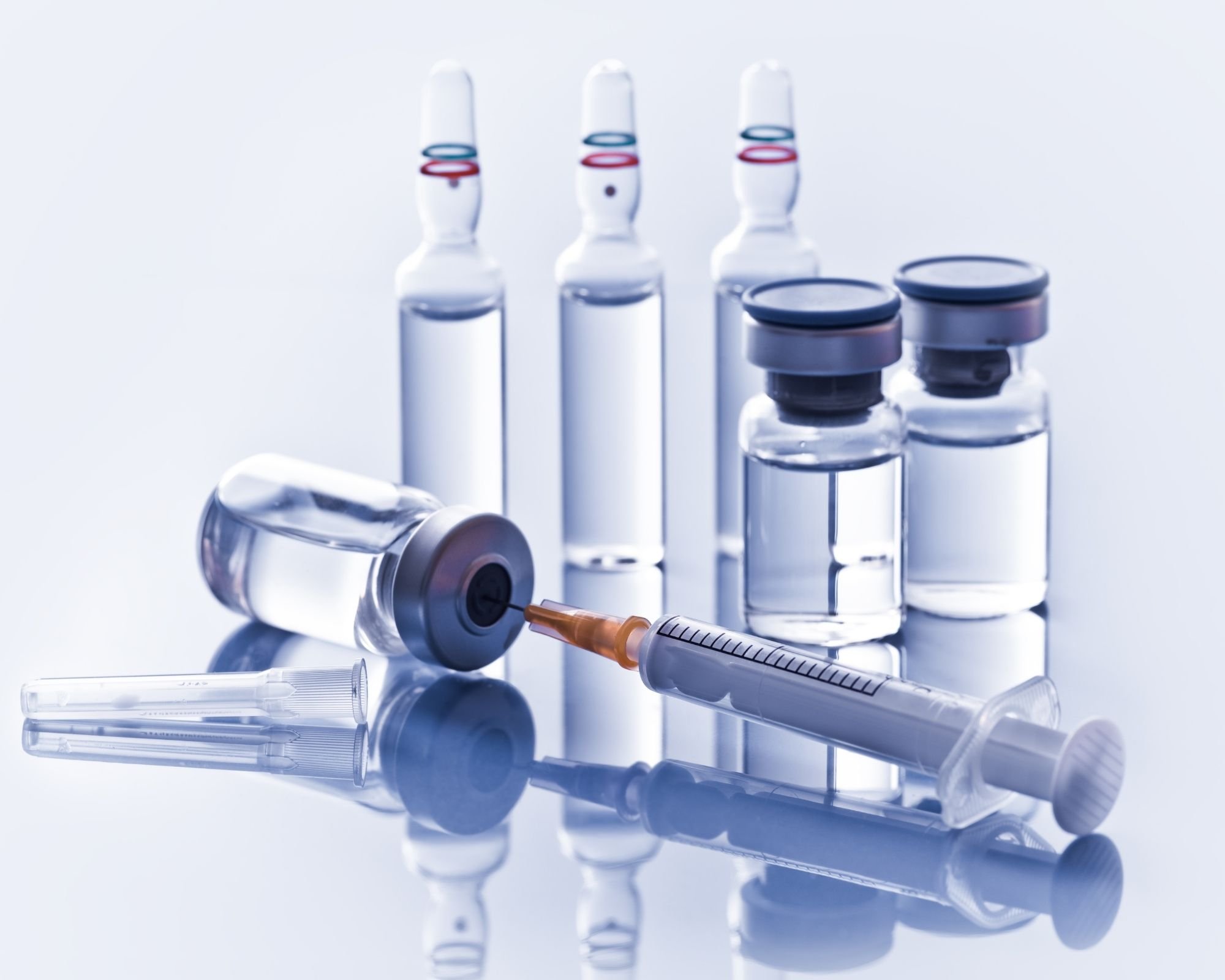Vaccination stop, then release again: AstraZeneca has heated the media minds and given new impetus to the discussion around the Covid-19 vaccination. The vaccines against the coronavirus were developed in record time. They are a masterpiece of research, but raise many questions precisely because of this rapid development.
New findings are constantly emerging. Information about storage temperatures, the number of doses needed, and the type of vaccine influence the way vaccines are handled as well as the public opinion. Therefore, AULANews would like to bring light into the darkness and present all relevant aspects at a glance.
Which vaccines are available in the EU?
Since December 2020, vaccines from four manufacturers have already been approved against Corona: BioNTech and Pfizer, Moderna, AstraZeneca and Johnson & Johnson/Janssen Pharmaceuticals. This is a so-called conditional marketing authorisation.
This conditional authorisation of the European Medicines Agency (EMA) is limited to one year. It can then be extended under certain conditions. A second possibility is that vaccination will be properly authorized. In either case, the EMA requires the pharmaceutical companies to continue providing data. Thus, information about test persons and data on other age groups are needed. In addition, data on groups of people who have not yet been vaccinated and studied are of interest.

mRNA and Viral Vector Vaccines
Especially the type of vaccine distinguishes the currently approved vaccines. While BioNTech and Pfizer and Moderna are mRNA vaccines, AstraZeneca and Johnson & Johnson/Janssen Pharmaceuticals are viral vector vaccines. The latter requires a virus as the basis for delivering information into the body.
Contrary to this, the products of BioNTech & Pfizer and Moderna work differently. The mRNA is the construction manual for a component of the covid-19 pathogen. It enters the body cells with the help of tiny fat droplets. These then also produce the virus protein, against which the body develops its immune response.
Do these vaccines also help against mutants?
The already approved vaccines protect against mutants or variants of the conventional coronavirus. However, there are major differences in efficacy.
Against the British corona mutant B.1.1.7, the vaccines seem to protect well. However, protection against the South African variant B.1.351 and the Brazilian variant P.1. is apparently lower.
Because studies and field reports show different results, it is not entirely clear which vaccine protects against which mutant.
Vaccines with lower effectiveness
In any case, it should be noted that also the ones with lower effectiveness help. Not only do they protect those who are vaccinated, but they also help to achieve herd immunity more quickly. In addition, because severe courses are prevented, fewer people die from covid-19. It also reduces the risk of new mutants forming.
This means: each of the vaccines helps.
